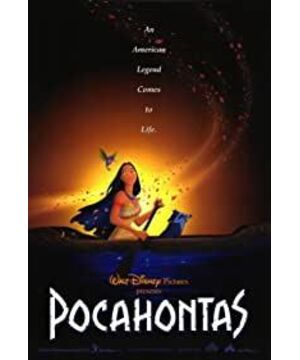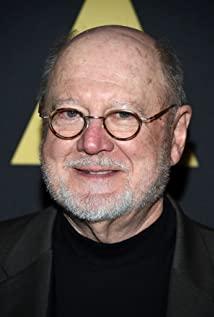Text/Ghost Seven
Hollywood is the world's largest dream factory, but there is no doubt that these colorful dreams are not created for everyone. Even in the current situation that Hollywood has expanded to various regions, nations, and cultural circles around the world, the Hollywood we are talking about has always served as a representative of cultural aggression in most contexts. Because what Hollywood brings to the world, in addition to the dazzling technology, is that value with a strong Western perspective.
1. East and West
In the history of the development of distant countries, the development of capitalism is all based on the primacy of the frenzied plundering of colonies. This strong urge to expand abroad has made the Western world generally accept a stereotyped Eastern impression. Whether it’s Marco Polo’s description of Asia or the American continent discovered by Columbus, Western people have imagined the "New World" as a place full of gold and mountains of wealth. In the movie, it was the "gold rush" that drove the British fleet to the world, and the Western colonists' beautiful vision of the Eastern world was quickly shattered. Because they learned that there was no gold, the crew rebelled against the governor and finally returned empty-handed. It can be said that this failure is inevitable, and it is precisely because the Western world's excessive fantasies about the East have allowed them to seize the right to speak in the East and portray the East based on their own imagination. In the second aspect, Orientalism's understanding of the East also includes the understanding of Orientals. In the film, the British used discriminatory terms for Indians and described them as a savage and cunning nation. This typical stereotype is of course conducive to the colonists calling people to fight actively, but at the same time it is at the expense of the lives of the Indians. The love tragedies of the heroes and heroines in the film are also victims of this concept.
Hollywood certainly has a certain reflection on the performance of the British and Indians in the film. Through the bravery of the hero and the kindness of the Indians, the invader and the aggressor were finally made peace by shaking hands. This is undoubtedly just wishful thinking of Hollywood or the Western world. In this seemingly respectful narrative of cultural diversity, the West is still the dominant one. It describes the kindness and simplicity of the Indians and focuses on creating a reunion situation. It is also another form of Orientalism. View.
2. Power and Culture
Culture is a field full of competition. Different social groups realize their own value output to the world through competition for power. Therefore, in the competition of culture, the struggle for power is at the core.
The power competition in the film also comes from two aspects. On the one hand, it comes from two different social groups, namely, British colonists and Native Indians. The second aspect comes from within the two groups: crew and governor, father and daughter. In the first aspect of the power struggle, control power is obviously on the outsider’s side, advanced weapons, sophisticated equipment, and modern ideas. These are the tools for Western colonialism to master power. Through these, they can pan for gold, It can open mountains and kill people. At the same time, more importantly, this is also Hollywood’s way of power control. Through advanced special effects, global markets, and huge commercial interests, Hollywood has mastered the world’s right to speak, and then exported it to the world. Values and cultural patterns. The most obvious example is that even if the Indians in the film speak fluent English, it is precisely because the Indians do not have the right to speak, and at the same time, the non-English speaking audiences do not have the right to speak.
In the second aspect, there is also the problem of the transfer of power and the right to speak within the group. The more typical one is among the British colonists, the governor is undoubtedly supreme at the beginning, and his power comes from the king, the official language. The government gave him a title and title, and he has the power that corresponds to it. However, most of the crew in the film are from the bottom. Their right to speak is deprived because of their origin. This is the ruler who continues his power. The basic way of ruling is to achieve the purpose of concentrating power in the hands of a few people by granting power to some people while depriving most people of power. The unequal treatment brought about by the unequal power in the film eventually led to collective riots by the crew, which overthrew the centralized mode of power held by a few people, gained the right to speak, and finally ended peacefully with the Indians. Similarly, there is a power struggle between the heroine and her chieftain father. It's just that this relationship is expressed in a more personal way. From the chief forbidding her daughter to leave the tribe, to the execution of the leading actor, to the end saying to her daughter, "You have to choose your own path," this kind of discourse mechanism, which is a mixed form of patriarchy and tribal rule, has loosened. This kind of power transfer is not from a minority to a majority, but from one generation to another, from one concept to another. If the shift of power from the minority to the majority represents the innovative progress of society, then the vertical transmission of power is the diachronic continuation of civilization.
Third, the identity of national identity The identity
of national identity is first established on the identity of one's own nation and the rejection of foreign nations. Not only the British have prejudice and discrimination against Indians, but also Indians have a distorted understanding of Westerners. And this kind of protection and defense of the nation is precisely based on nothingness and imagination, that is, the "imaginary community." The British crew traveled all the way to the Americas, and what pushed them forward was their allegiance and honor to the royal family, apart from their dreams of making a fortune. But this king and the bearer of honor is an existence far away in the sky. This just hints that the concept of homeland, which is condensed by a fabricated concept, is just like this group of sailing crew members, it is precarious and untenable. On the Indian side, Hollywood’s unfamiliarity with Indian culture made them even more unable to find out the spiritual totem and connection of this nation, so they had to create a supernatural tree god out of thin air to convey this imaginary spiritual power.
Another interesting point is the compass left by the hero to the heroine. This small prop expresses the heart-to-heart connection between the hero and heroine, and guides the heroine to save the hero's life at a critical moment. But from another aspect, this prop also just illustrates the concept held by people of different identities, different races, and different cultural traditions: the rotating arrow dreamed by the heroine and the compass of the hero are combined into one. . So, hasn't the so-called concepts of nation, country, and different interest groups just turned out to be illusory? In the film, after this scene, the language problem between the Indians and the British was completely resolved. This rather unreasonable change is actually the result of the collapse of the national identity.
Hollywood makes dreams, and always makes beautiful dreams. At a time when cultural consumption and enjoyment are spreading all over the world, Hollywood will inevitably transform its dreams to suit the tastes of the world. However, no matter how it is transformed, Hollywood will always output Western values and cultural concepts, and will always replace the East in speaking. Imagine out of thin air in a place far away from Eastern culture. Conceiving a reunion in line with one's own cultural concept is exactly the dream of Hollywood, and the dream of the current world culture holders. Unfortunately, it can only be a dream.
(Classroom paper finishing)
View more about Pocahontas reviews











